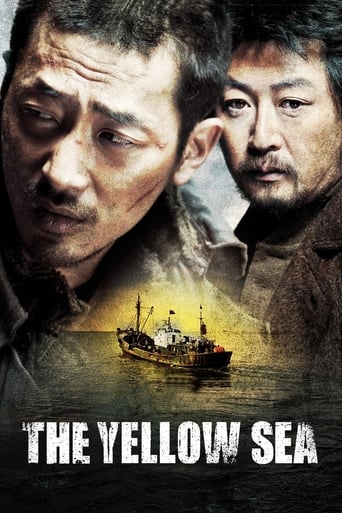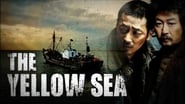Yorick
I guess I'm a minority of one but I don't get the praise. Overkill + Repetition + Incoherence = What, exactly? A good movie buried somewhere. The filmmakers seemed to take the approach that if they have one gang of gangsters running around incoherently then 3 (I think) gangs of gangsters running around incoherently is 3 times better. If we have one interminable car chase in the city then 20 interminable car chases in the city is 20 times better. If we have one bloody poorly lit incoherent knife-and-ax fight, then 20 bloody poorly lit incoherent knife-and-ax fights is 20 times better. (By the way, don't they have guns in Asia?) I will say, however, the ending is cool.
McCamyTaylor
First, I should mention that I am a Buddhist. That means that I usually find Asian action films more satisfying that American action films. In the west, dualistic good versus evil themes dominate violent movies. As long as "good" defeats "evil" in the end, we are supposed to go away satisfied, no matter how much suffering occurs between the opening and closing credits. In the east, there is a different morality. The Buddha taught that desire (attachment) is the root of all suffering. So, in an Asian action film we see characters who are done in through their own excessive desire/attachment. Since the things to which they are attached are often things we are trained to see as "good"---like love, wealth, family---the endings of Asian films can seem confusing or depressing.This film has the standard Buddhist themes. However, it has more. The characters---even some of the ones we might like to think of as "bad"---are surprisingly well rounded, with admirable qualities as well as less than admirable qualities. The social/economic system that requires that many live in poverty so that a few can live in wealth is properly criticized, but the film is not a Marxist polemic. As good Buddhists, we know in our hearts that balance in all things and detachment is the ideal, but the film makers still use every trick at their disposal to make us care about the main character and his quest.Regarding the film's length, I think it was perfect. This is a lot like one of the "Once Upon a Time In..." movies that shows you many different points of view of the same place/conflict/time. Yes, the length and differing viewpoints make it difficult to summarize the movie. However, real life can not be summarized, either. Real life is complicated. And by the time the film reached it inevitable conclusion (inevitable if you are a Buddhist) I felt as if I had finished reading a novel rather than watching a film. Despite the nice, tidy (Buddhist) ending, there was still lots left for me to mull upon.
bob the moo
Unable to break free of the visa debts that his wife left him with when she went to South Korea to earn money, a taxi driver takes an offer from local criminal Myun to be smuggled into South Korea in order to kill someone for him. The money is the main motivator but he also hopes he can find his wife somehow. Trying to accomplish these hurts both of his goals and, as he is soon to discover, the story is much larger than just a simple killing.I had heard good things about this film and, if I'm honest, it took me a while to get around to watching it mainly because the running time put me off. In a way I was right and wrong because when I finally did watch it the running time is excessive but yet it does mostly still deliver as a thriller. The plot sees a simple murder escalate as others involve in its planning or execution all start to represent a danger to our main character, who is trying to get home even though he'll be no safer there. It takes a little while to get moving but the film soon delivers some violent scenes as well as some exciting chases and escapes. The build of the plot helps these be engaging and exciting while in fairness they are also pretty well filmed as well. The more frantic action has the feel of the Bourne movies (although not as effective) and those that know the locations may get extra value from Busan harbor and some of Seoul showing up.The plot isn't perfect though and it does contribute towards most of the film's weaknesses. The first of these is the subplot involving the missing wife; it acts as an engagement tool with the main character that we didn't really need but otherwise it just seems to add distraction away from the main narrative. I was fine with it being mentioned but in the end I didn't understand why it was given so much time. Speaking of time, this is an issue because the film runs far longer than it really needs to and even though I enjoyed it, I still found myself thinking of all the really obvious places where the film could have been edited down to a still-generous two hours. As it is, the length means the pace cannot be kept up and that the simple story is spread out too much. This shows in how excessive but yet how very tidy everything gets. I liked the way that the various characters all fell into place around the lead's story, but I liked it best when it was chaotic, not when it is all pulled together to be all tidy and resolved at the end. That said I did enjoy the nihilistic tone it had and that, in the end, the route of the original murder was something so simple and personal that it wasn't even worth one man's death, far less all those shown here.The main actor is convincing and kept me interested in his escape; his performance keeps him as a human and tragic figure even though he is able to evade the odds a bit too easily and a bit too frequently. Myun is a great character full of menace and violence and the actor has fun in that role, but the excessive action does at time get too much to buy into since he has a stamina that a Terminator would baulk at. The rest of the cast fill in well enough, but mostly it is the action and plot that keeps the film moving, not the performances. Na's direction is good although I know some dislike cameras that move all the time.Overall Hwanghae is a solid and enjoyable thriller which would be better were it not for its own excesses. The running time is excessive, the spiralling plot and stamina of the main characters are excessive and the whole film really needed a tighter edit to make the most of its strengths. Still solidly good but could have been more.
lewism200
The latest Korean thriller to make the international leap is quite an event. Weighing in at a respectable 140 minutes (still 17 minutes shorter than the Korean version) it is filled to the brim with as much grit as anyone could wish for. I knew from the opening voice-over that I wasn't in for a barrel of laughs. The cold monotone relating the tale of a childhood pet dog that died of rabies set the tone for the uncompromisingly grim two-and-a-bit hours to follow. The story follows Gu-Nam, a taxi-driver struggling to make ends meet in a province between Korea and China. His wife has moved away to earn money but hasn't made contact.. In an impossible hole of debt, he is offered a way out. He has to go to Korea and kill someone there. The gangster (the ruthless and unflappable Myun) offering this once-in-a- lifetime chance will, of course, kill his family if he fails. Not, you might think, a terribly original plot idea but there are a number of qualities which make it rather special. First, the setting; South Korea's major cities provide a wonderfully bleak backdrop to the action and much of this is rather beautifully showcased by director Hong-Jin Na. But more than this, the film gives an insight into aspects of Korean culture never normally seen by the Western world, particularly the discrimination against the region Gu-Nam is from (the name of which I will not attempt to type). However, the film's defining feature must be its sheer, visceral grit. Everything, including our desperate protagonist feels painful and dirty. The bloody fight scenes are utterly devoid of glamour and deliberately so. Sadly however, this also robbed them, for me at least, of much of the charm I normally find in well-choreographed fight scenes. This is a trend continued throughout the film. The story, though fairly linear, is complicated by a plethora of characters and the audience is given little to nothing in the way of tantalising hints to lead us through. Essentially, Na has gone out of his way to produce as brutal and harsh a film as he could and, in the process, sacrificed a great deal of potential enjoyment.




